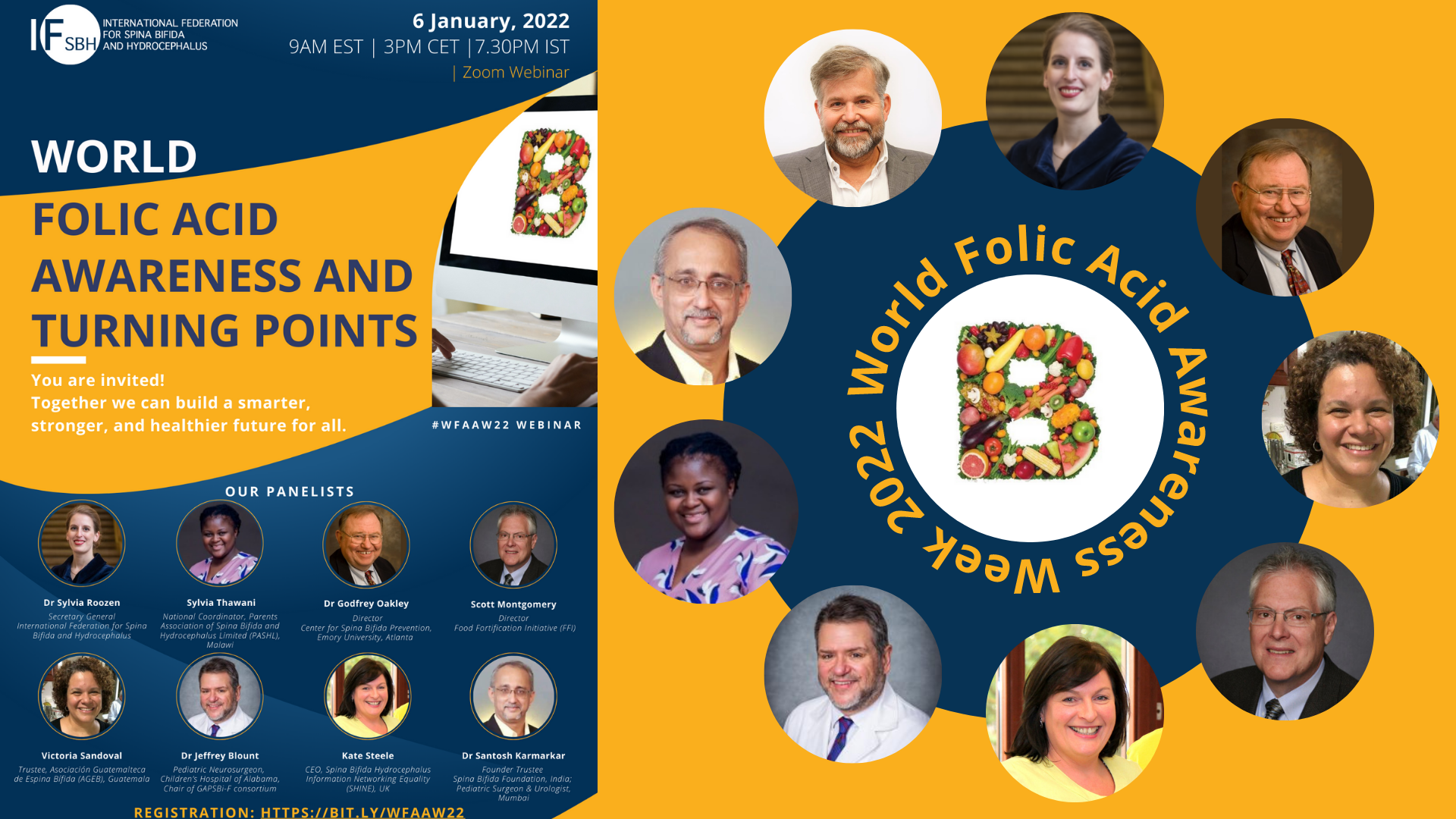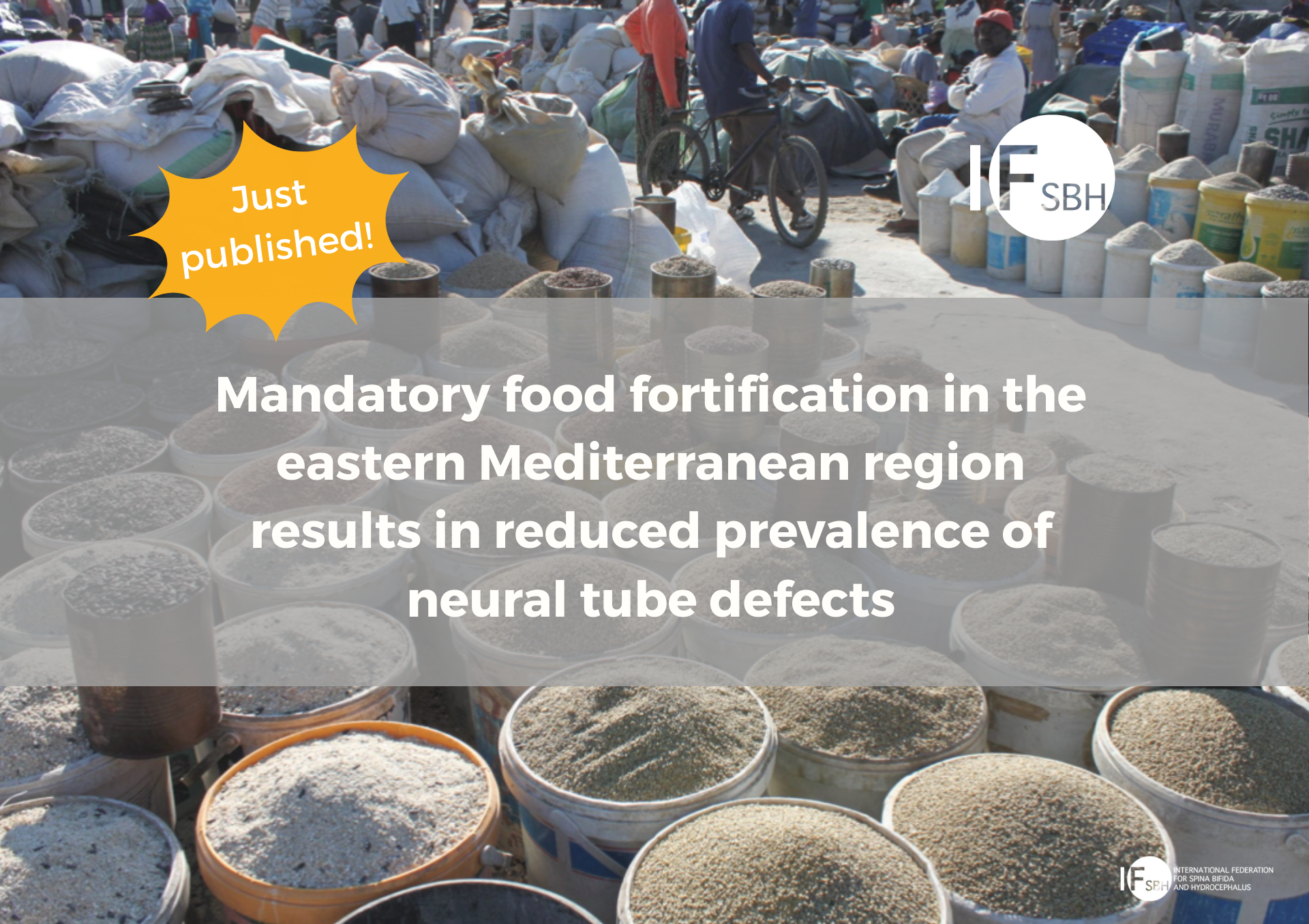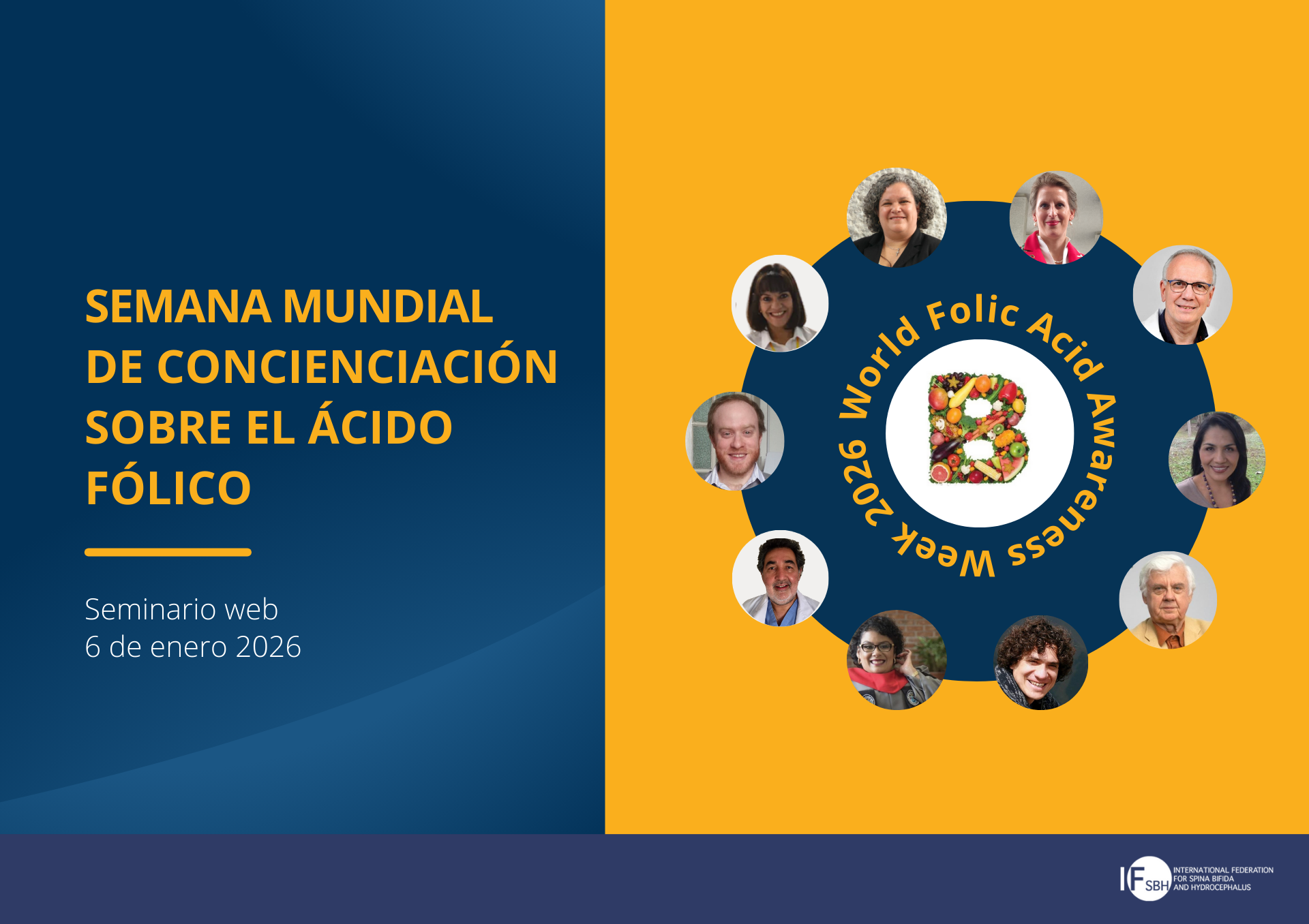The IF President, Cato Lie, opened the event with a word of welcome and pointed out the importance of folic acid for healthy pregnancies and in the prevention of Neural Tube Defects (NTDs), in particular Spina Bifida and Hydrocephalus (SBH).
Subsequently, the IF Secretary General Dr Sylvia Roozen, also chair and moderator of the event, welcomed speakers and participants on behalf of the International Federation for Spina Bifida and Hydrocephalus (IF) which highest values are the promotion and protection of the human rights of persons with Spina Bifida and Hydrocephalus. IF continuously works to improve the quality of life of individuals with SBH and to reduce the prevalence of Neural Tube Defects and Hydrocephalus by primary prevention. During the first week of the new year, IF together with its Global community celebrates the World Folic Acid Awareness Week. Food fortification and folic acid supplementations are essential tools for prevention, especially in times of a pandemic. During this week, the federation takes the opportunity to transform the way the world tackles the global challenge of malnutrition and prevention of Neural Tube Defects.
The webinar gathered a panel of experts with a proven track record in global leadership for the prevention of NTDs. Throughout the webinar, they will share their perspectives on turning points on how we, together, can build a smarter, stronger, and healthier future for all.
As a first speaker and panelist, Dr Godfrey Oakley (Director of the Center for Spina Bifida Prevention, Emory University, Atlanta) highlighted the opportunity to improve the health of millions of children today and generations to come. Dr Oakley shared several types of Spina Bifida:
- Spina Bifida F caused by folate deficiency;
- Spina Bifida V cause by the drug valproic acid;
- Spina Bifida D caused by maternal insulin dependent diabetes mellitus;
- Spina Bifida X which cause is unknown.
The opportunities discussed today around folic acid fortification only apply to the prevention of Spina Bifida F. The folic acid deficiencies vary from country to country depending on the scale of fortification. This can be done by
- Implementation of folic acid fortification of wheat, corn and rice, iodised salt in all countries
- Implementation of folic acid pill programs to complement fortification where needed, and not to replace fortified foods
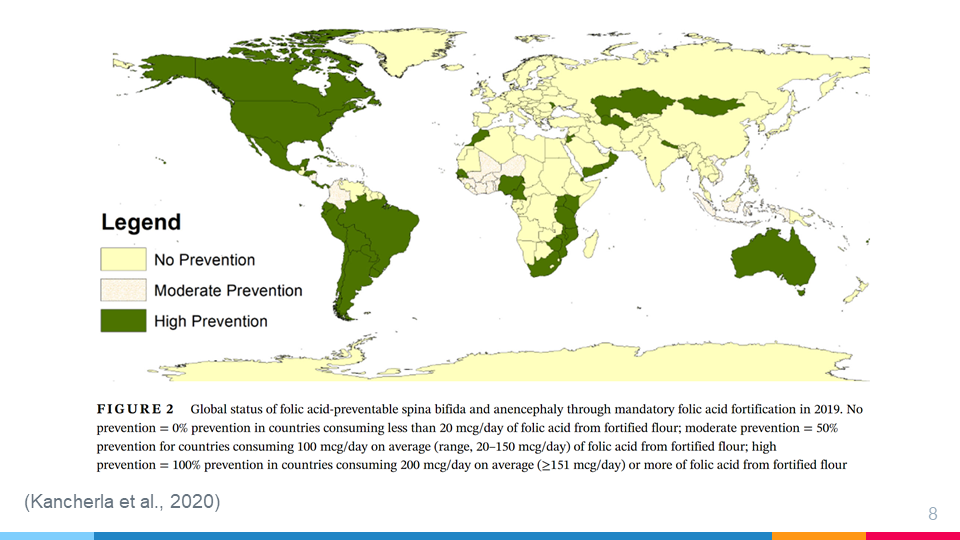
The second panelist, Victoria Sandoval (Trustee, Asociacion Guatemalteca de Espina Bifida (AGEB), Guatemala) shared her perspective on prevention from awareness raising campaigns in Guatemala. She emphasised the fact that pregnancies cannot always be planned, which makes providing folic acid to all women of reproductive age on a daily basis even more important. Together with her association in Guatemala, a multisectorial approach is applied to raise further awareness.
Thereafter Scott Montgomery (Director of the Food Fortification Initiative (FFI); implementing partner Smarter Futures) shared the importance of public-private-civic partnerships such as Smarter Futures.
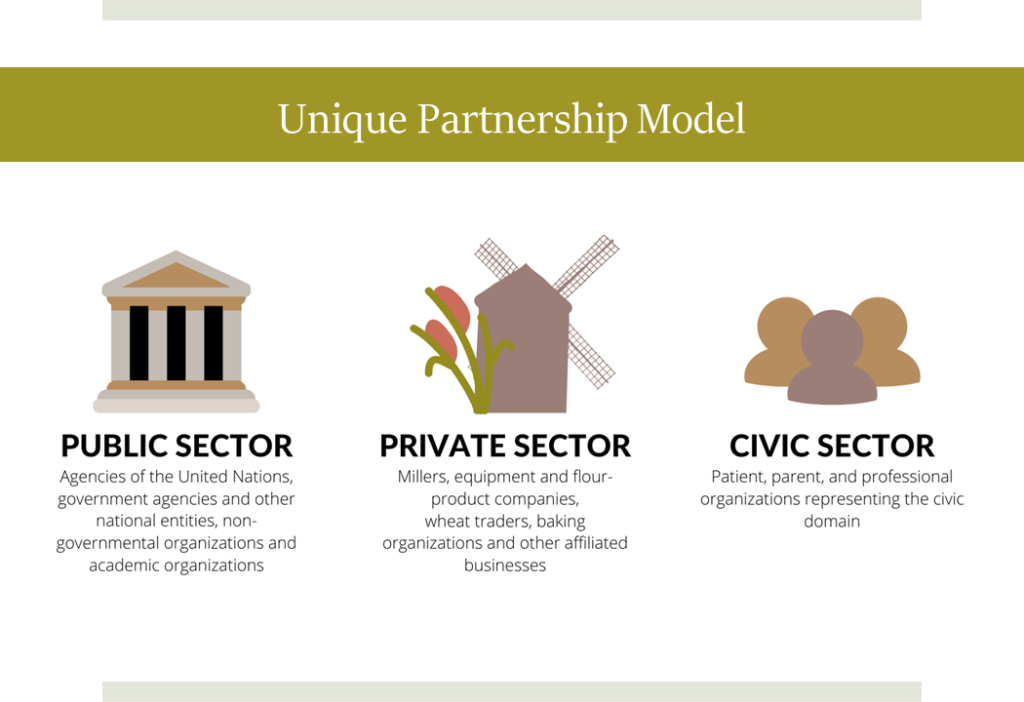
Food fortification is one of the most powerful tools we have to tackle malnutrition due to its distinct combination of qualities including scalability, sustainability, and cost-effectiveness. Smarter Futures and FFI are committed to ensuring all people can consume diets rich in folic acid and to preventing neural tube birth defects. For this, there are several key actor such as millers—without millers, there is no flour fortification. Governments are also key—they enable fortification through a supportive regulatory environment. They aim to build capacity in these networks and provide technical support and training.
Kate Steele (affiliation) spoke about a 30-year long journey in making fortification a priority in the UK. Since 2017, SHINE has tremendously worked on folic acid awareness and reached the decision-makers to unlock the prevention of Spina Bifida through mandatory fortification. In 2018, SHINE reached the Parliament with their ‘Fight for Fortification’ campaign which later led to a public consultation in June 2019. The consultation closed in September 2021 with the introduction of mandatory fortification of flour with folic acid in the UK.
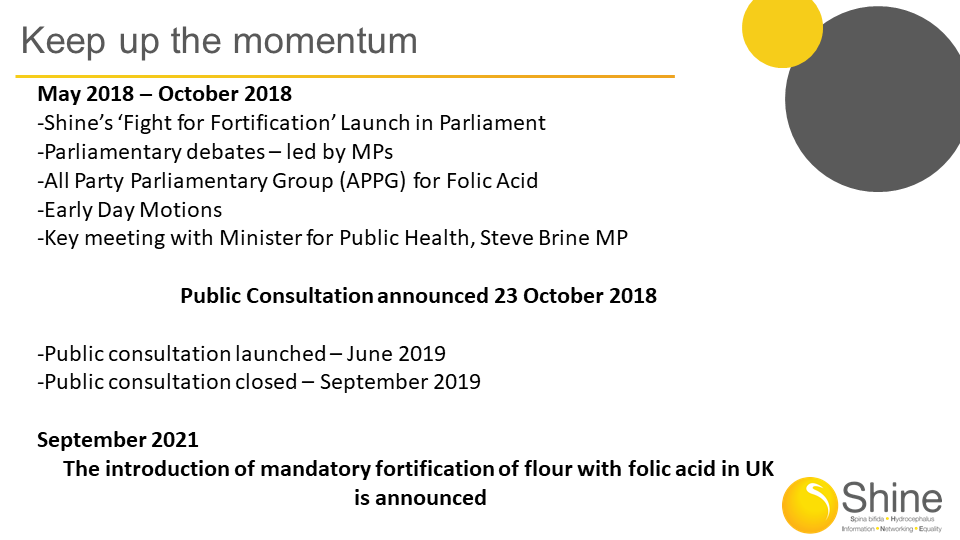
Several lessons learned were shared, such as the importance of involvement of persons with Spina Bifida who made the campaigns more impactful with their voices and experiences alongside evidence and scientific-based information, which is essential. Partnership is key in such a campaign to be heard. Contacts at government level are a strong ally to bring the campaign to the governments’ agenda. The millers and flours industries were also important players. While leading this campaign, Kate Steele also mentioned the importance of understanding the point of the opposition to be prepared to respond. Last but not least, Kate drew attention to planning and preparing such a campaign. She concluded her speech with the following words: ‘’Know your goal, plan and prepare, work with others and believe!’’
The fifth panelist and speaker was Dr Jeffrey Blount (Pediatric neurosurgeon, Chair of GAPSBi-F consortium). Dr Jeffrey Blount emphasised the importance of science-based advocacy and the widespread fortification such as salt fortified with folic acid. Neurosurgery is part of each life stage (“across the spectrum of life”) of persons with Spina Bifida. Neurosurgical intervention is often the first medical treatment the child needs by closing the back. Dr Jeffrey Blount pointed out that multidisciplinary care is essential as persons with Spina Bifida go to adulthood where a multidisciplinary approach is needed. As chair of the GAPSBi-F consortium, Dr Blount shared that neurosurgeons are strong advocates to connect with policy-makers and make fortification. Together with the partners of GAPSBi-F, Dr Blount looks forward in making significant steps forward.
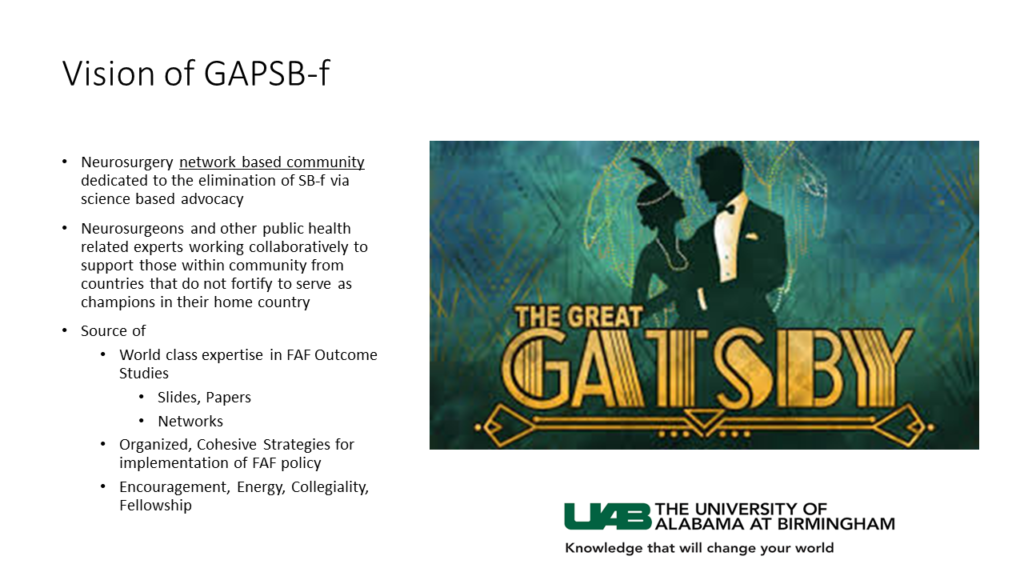
Hereafter, Sylvia Thawani (National Coordinator at PASHL, Malawi) shared PASHL’s work in Malawi. Sylvia emphasised that fortification and Spina Bifida are not well understood by citizens. PASHL advocates for better access of folic acid prior to pregnancy and in particular for women of childbearing age. As an active parent organization, the members of PASHL advocate and raise awareness for large-scale fortification of wheat and maize flour. Sylvia Thawani outlined the importance of encouraging persons with Spina Bifida to advocate for themselves by sharing their experiences and raising awareness. As an example, the youth in Malawi do this through movies and digital means. For the year 2022, PASHL focusses on strengthening its existing network and position to influence decision-makers on governmental level.
The last panellist Dr Santosh Karmarkar (Founder and Trustee of Spina Bifida Foundation India) shared his perspective from the progress on fortification in India. Similar to earlier speakers, Dr Karmarkar shared the need for improved and widely available information on Spina Bifida and aspects of prevention. Previous year Dr Karmarkar initiated the India Birth Defects Task Force, which is a network of experts, individuals (including parents and members) and organisations. This Task Force is working on launching a national awareness-raising campaign and is currently engaged in ensuring proper fortification standards in India. Dr Karmarkar also encouraged countries to constitute task forces with international experts on board and lobbying with governments.
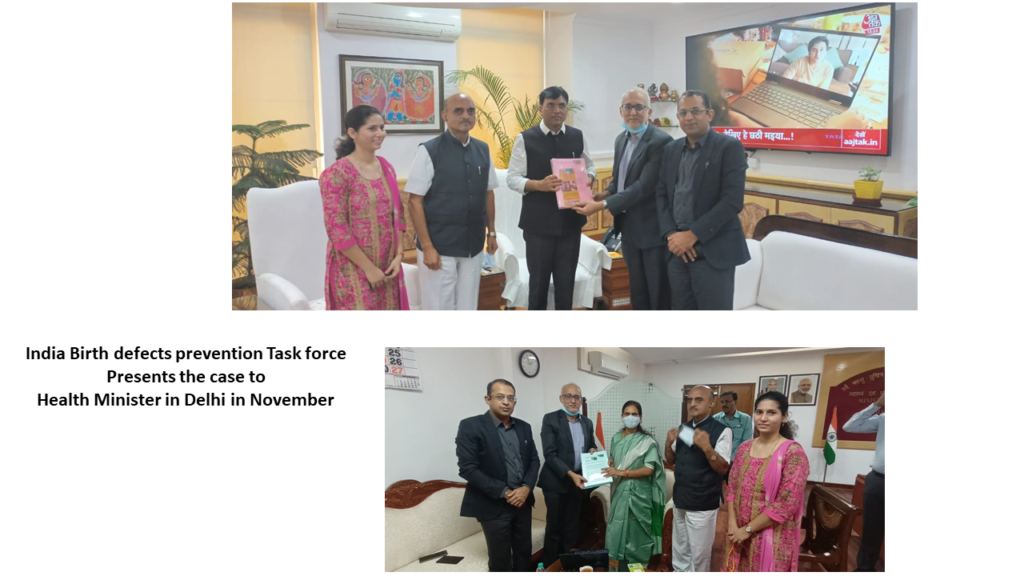
During this webinar, all panelists shared their unique experiences, visions and wishes for the upcoming time. Several strong messages were shared to reach significant Turning Points in NTD prevention (what is needed, for whom, and how, and the need for longtime commitment to make change happen together).
The webinar gave insights in how countries can create political will, but also about building networks on each level within the society to mainstream our message that healthy pregnancies start with a healthy lifestyle including balanced diet.
By facilitating these webinars and interactive meetings, experiences from around the world can also inspire other countries in their current actions. It is not about what we can do wherever we are, but what we can do together.
IF thanks the panelists for their leadership and setting a great example for others to follow.
IF looks forward to your active involvement and welcomes your partnership!


